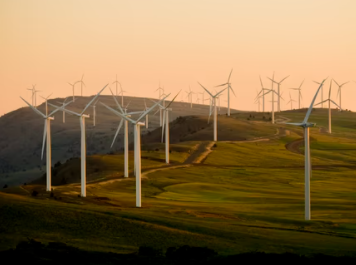Namibia’s first ever World Bank financed energy project has received approval. Aimed at improving the reliability of the country’s transmission network and enabling increased integration of renewable energy into the country’s electricity system, the $138.5 million project will be implemented by the national electricity utility, NamPower.
“Namibia is a uniquely positioned regional leader in the transition towards Transmission Expansion and Energy Storage Project a greener and more sustainable future. The World Bank is delighted to support Namibia’s commitment to expand domestic energy generation with renewable solutions, consistent with the country’s Second Harambee Prosperity Plan (HPPII). This project will support NamPower to develop future renewable energy projects,” says Satu Kahkonen, World Bank Country Director for Namibia.
The project is structured around three components: (i) development of the second Auas-Kokerboom transmission line, (ii) development of a utility scale Battery Energy Storage System facility; and (iii) technical assistance activities to support NamPower develop bankable renewable energy projects and enhance the socio-economic benefits of their projects. The project will support the development of a systematic socio-economic framework to support job creation, skills development and female employment during design and implementation of utility led projects.
“NamPower welcomes the financing approval of the project, as this is one of the major strategic and crucial investments towards Namibia’s electricity transmission network. NamPower will be able to maintain pace with evolving and increasing electricity needs of the country. The line will be key to unlocking increased access to variable renewable energy (VRE) within Namibia, as well as facilitate regional electricity trading. In addition, our second utility scale battery energy storage system will be developed and integrated in our transmission network to support the development and uptake of renewable energy plants,” says Kahenge S Haulofu, NamPower Managing Director.
Namibia has excellent renewable energy resources, however, installed renewable capacity in the country is just over 30% of total generation. This project’s investments to strengthen the power grid are critical to enabling the integration of more variable renewable energy sources in the system. The project aims to minimize outage risks, support load growth, and unlock future opportunities for power trade in the Southern African Power Pool. The grant funding from the IBRD Fund for Innovative Global Public Goods Solutions and the Green Climate Fund will be used for developing the second utility-scale battery storage facility in Namibia. This will further facilitate integration of large-scale renewable energy in Namibia’s generation mix, enabling it to reduce imports, improve grid stability, and help manage its demand peaks.

